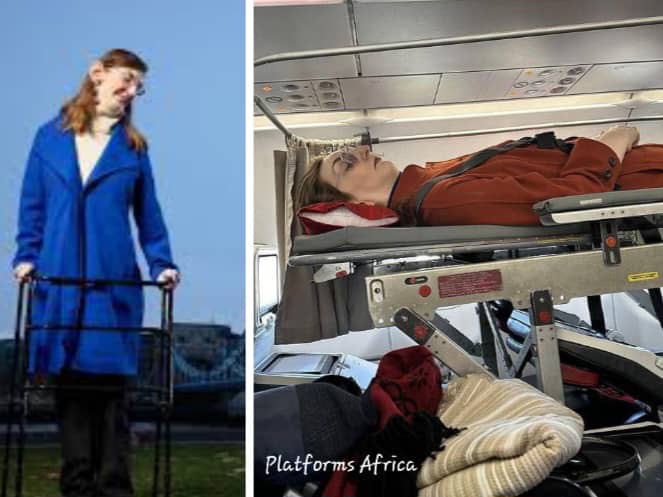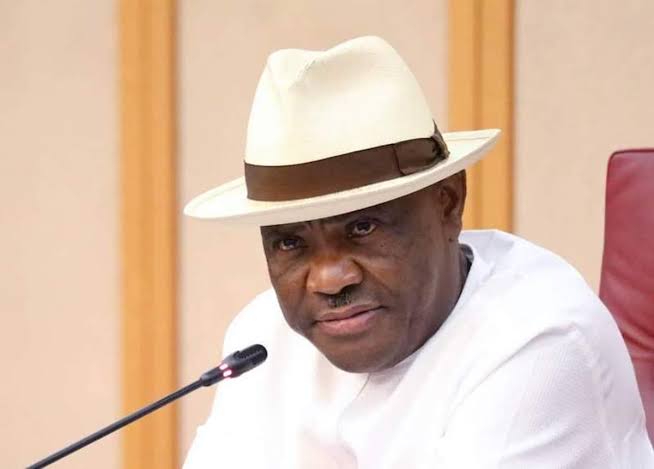The tallest woman in the world, Rumeysa Gelgi, has said she has to pay for six plane seats every time she flies.
Rumeysa, who is 7ft 0.7 inches tall, was born with a rare condition called Weaver syndrome, which causes rapid growth and other health issues.
She uses a wheelchair or walker to move around, Luxury Travel Daily reports.
After turning 28, Rumeysa set out to visit every country she could but travelling isn’t simple for her.
This is because she’s too tall to sit in regular airplane seats, she has to lie flat on a stretcher for the entire flight.
To make this possible, Turkish Airlines removes six seats from the plane and replaces them with a special stretcher for her.
She first flew this way in 2022, from San Francisco to California, and now flies only with the airline, which offers this unique service.
Each flight comes with many challenges as she must arrive at the airport four hours early, meet medical staff, and pay for all six seats the stretcher takes up.
2027: Oyo Broadcaster Oriyomi Hamzat’s Posters Flood Ibadan
’12 Hours In Custody,’ Journalist Nurudeen Adegbenro Speaks After Release
‘7 Assets In One Year,’ Govt Institutions, Monuments Named After Tinubu + LIST, PHOTOS
Despite these difficulties, Rumeysa has already visited the US, UK, Spain, and Italy.
She dreams of seeing Tokyo, Kyoto, Shanghai, and Seoul next.
However, she hasn’t yet travelled by bus or train, though she hopes to try soon.
One of her biggest frustrations is the lack of accessibility at many famous places and old buildings.
“It’s upsetting to hold myself back from visiting remarkable places and experiencing the richness of history,” she told Luxury Travel Daily.
She explained that safety is her top concern.
Due to spinal implants, even a small fall could be dangerous.
That’s why she often skips visiting places that aren’t easy to access.
Even in her hometown of Safranbolu, Turkey, she hasn’t been able to see its well-known Ottoman-era landmarks, because they’re not wheelchair-friendly.
“It’s close by, but not accessible,” she said.
While she appreciates when people offer to help, she says the help isn’t always safe or practical.
“Everyone deserves the chance to connect with the past, regardless of mobility,” Rumeysa added, calling for more innovative ways to open up historic places to people with limitations.
PUNCH





